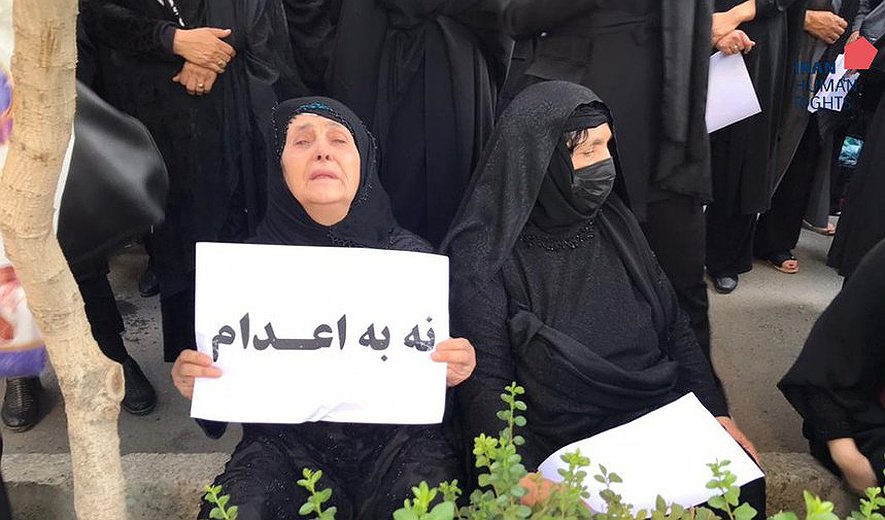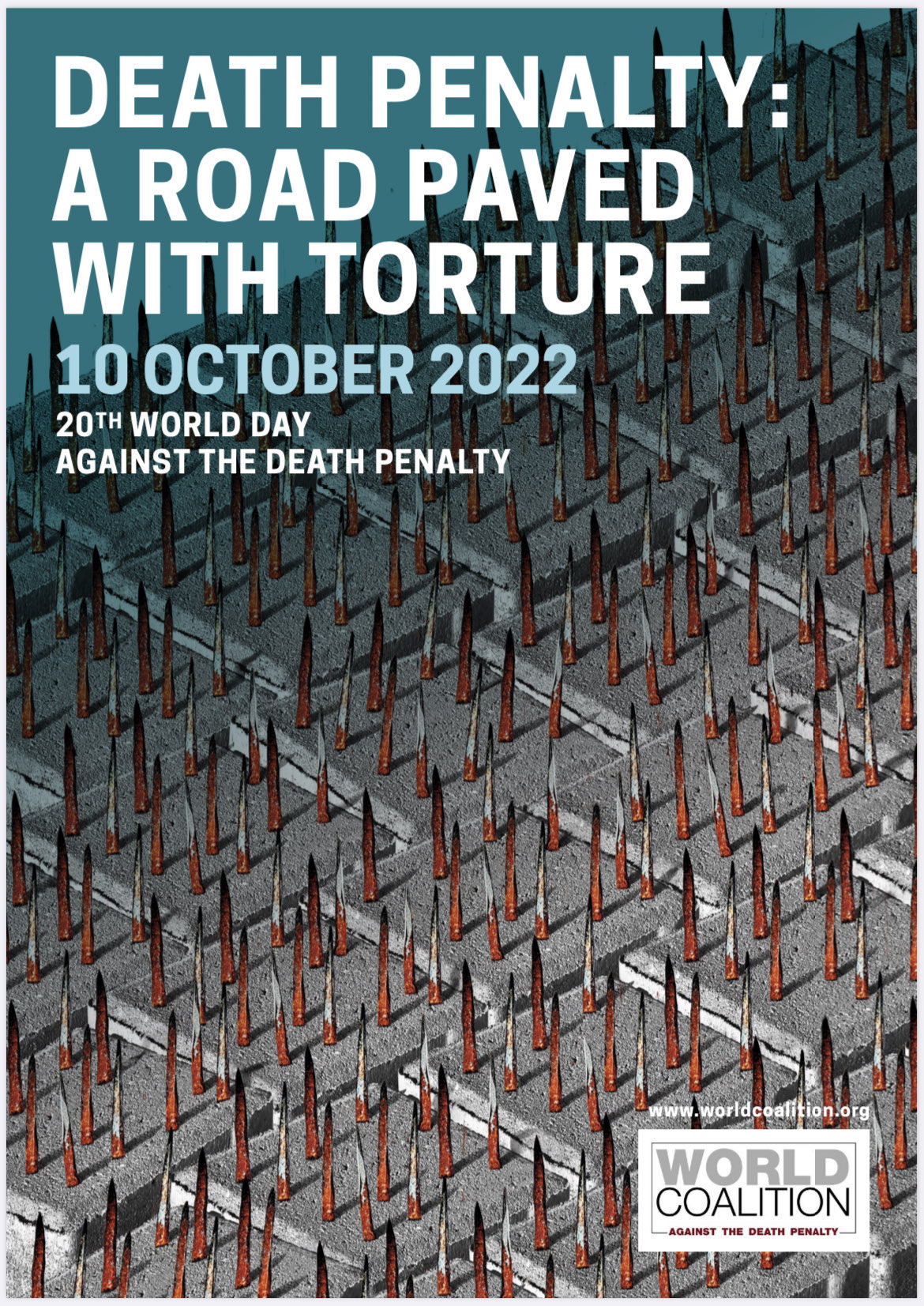World Day Against the Death Penalty; 428 Executed in Iran in 2022

Iran Human Rights (IHRNGO); October 10, 2022: Today, as we welcome World Day Against the Death Penalty which is marked on October 10 every year, Iran Human Rights statistics reveal an 89% increase in execution numbers compared to the same period last year. At least 428 people including two juvenile offenders and 12 women were executed in the first ten months of 2022.
Commemorating the day, Iran Human Rights invites the public and civil society to express their opposition to the death penalty as the most critical tool of state repression. Director, Mahmood Amiry-Moghaddam said: “For 43 years, the Islamic Republic has managed to stay in power by creating terror and executions. Opposing the inhuman punishment of death and fighting for its abolition are important steps towards the permanent end of dictatorship.”
Observed every 10 October, the World Day Against the Death Penalty unifies the global abolitionist movement and mobilises civil society, political leaders and public opinion to support the call for universal abolition of capital punishment. The 20th World Day Against the Death Penalty has been dedicated to “Death penalty: a road paved with torture” by the World Coalition Against the Death Penalty.
There has been a sharp rise in the number of executions in Iranian prisons in 2022. According to data recorded by Iran Human Rights, at least 428 people, including two juvenile offenders and 12 women were executed between 1 January-10 October 2022.
Only 52 of the executions were reported by official sources and the remaining 376 were recorded by Iran Human Rights through reliable sources inside Iran and human rights defenders.
Rise in executions compared to previous years:
The number of executions have increased by 89% compared to the same period last year. At least 428 executions have been recorded from 1 January-10 October 2022. 226 executions were recorded for the same period in 2021 and 209 in 2020.
Continuing increase in drug-related executions:
At least 180 people including a woman have been executed for drug-related offences since the beginning of the year. This is while 83 people were executed for the charges in the same period in 2021 and 18 in 2020.
Execution of Baluch minorities:
The Baluch minority have continued to be disproportionally executed in Iran. In 2021, Iran Human Rights reported that 21% of executions were Baluch minorities while only representing 2-6% of the population. At least 121 Baluch citizens have so far been executed in 2022, representing 35% of all executions. Of the 121, 82 people including a woman, were executed for drug-related charges. Baluch minorities are also grossly overrepresented in the state killings in the nationwide protests, with half the recorded deaths being Baluch.
Execution of juvenile offenders:
The Islamic Republic is one of the last remaining governments to still execute juvenile offenders. At least two juvenile offenders were executed in the first ten months of 2022. Omid Alizehi, a 22-year-old Baluch juvenile offender and Mohammad Hossein Alizadeh, a 24-year-old Afghan national were both sentenced to qisas(retribution-in-kind) for murder.
Execution of women:
At least 12 women were executed by the Islamic Republic in the first ten month of 2022. Of those, 11 were sentenced to qisas (retribution-in-kind) for murder and a Baluch woman was sentenced to death for drug-related offences.

In 2002, the World Coalition Against the Death Penalty declared 10 October as the World Day Against the Death Penalty with the goal of abolishing the inhuman and irreversible punishment, and is considered a turning point in the fight against the death penalty. The World Coalition consists of 170 members from five continents, of which 20 organisations including Iran Human Rights are members of its Steering Committee. The Committee is responsible for making necessary decisions to implement the Coalition’s strategy. It should be noted that more than two thirds of countries are abolitionist in law or practice.

